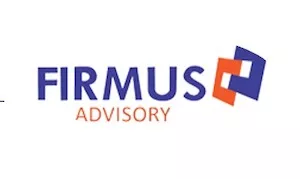- within Immigration, Tax and Finance and Banking topic(s)
- in United States
Fintech is an acronym for financial technology. It has been a thriving aspect of Technology in the past few years. It is a term used to describe the use of technology to improve financial services. Fintech is a rapidly growing space with a lot of opportunities as finance cannot be dispensed with. Fintech makes financial transactions faster, easier, and accessible to consumers. Fintech in Nigeria is a space that the government constantly seeks to regulate to ensure financial security.
What is the minimum Share Capital for FinTech in Nigeria?
Although the required minimum share capital for private companies in Nigeria is N100,000 (One Hundred Thousand Naira) that of fintech is dependent on the type of license that the company requires to operate with.
What are the categories of financial technology companies in Nigeria
1. Payments
This is the most common category in Nigeria and most businesses have adopted this channel of payment for their business. Examples of the players include Baxi Pay, Palmpay, Paga, Cellulant, Flutterwave, eTranzact, Paystack, Remita, and OPay.
2. Digital Banking
Fintech companies in this area provide banking services but are more simplified than the traditional bank. An example of this type of company is Kudabank.
3. Lending
Companies in this space use digital lending platforms to offer small loans to consumers who have capacity to pay back. Examples of the firms in this area include Renmoney, Paylater, Page, Aella, CreditDirect, and Zedvance.
4. Savings and investment
These are fintech companies that help structure saving and investment. Companies engage this service include PiggyVest (formerly Piggybank), Cowrywise, Farmcrowdy, Kolopay, Risevest, Carbon, and Eyowo
Who regulates Financial Technology companies in Nigeria?
The major Regulator of Financial technology companies in Nigeria is the Central Bank of Nigeria (CBN) which derives its powers to regulate from The Banks and Other Financial Institutions Act, 2020(BOFIA). Other regulators include The National Deposit Insurance Corporation by virtue of the NDIC Act, 2006, The Nigerian Communication Commission by virtue of the Nigerian communication Act, 2003, and The Securities and Exchange Commission (SEC) by virtue of the Investment and Securities Act, 2007, National Insurance Commission and The Corporate Affairs Commission (CAC) by virtue of the CAMA 2020.
To view the article in full, click here.
Originally published November 5, 2022
The content of this article is intended to provide a general guide to the subject matter. Specialist advice should be sought about your specific circumstances.


